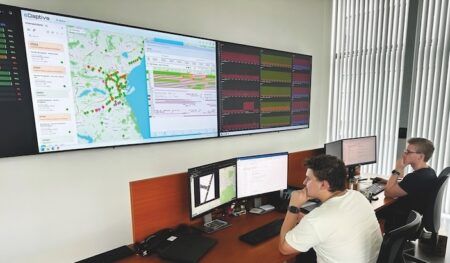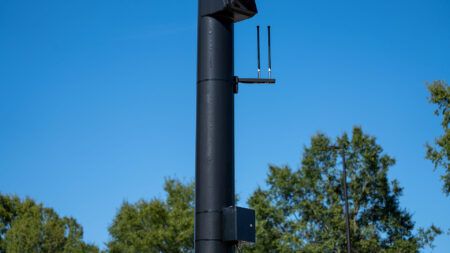The first phase of the Coruña Smart City project has been completed, with the second phase currently being implemented. The scheme is Spain’s first project that aims to use technology to achieve full cross-disciplinary city management. The urban platform has been installed and is now operational in the City Council’s Data Processing Center (DPC). The city’s new ‘brain’ has already begun receiving data from the first three of the 14 pilots that make up the project: multichannel events, guided visits system and electronic administration. Citizens can now use the first services, including mobile applications for the city’s cultural and leisure calendar of events and guided visits with augmented reality. The remaining 11 pilots are currently underway and will ‘go live’ over the coming weeks, including: smart parking; traffic optimization; water quality and early alert system; supply network telemanagement; energy efficiency in council buildings; smart irrigation; air and noise quality system; energy improvement at the A Telva wastewater treatment plant; interaction with residents and the BIO project.
The first phase of the Coruña Smart City project has been completed by a consortium comprising of Indra, Altia, Ilux and ‘R’ as the telecommunications operator, and has involved designing and starting up the technoly platform, the city’s ‘brain’. The Smart City platform is based on SOFIA2, Indra’s Internet of Things (IOT) system that has cloud and big data capabilities, and allows the integration and sharing of information from different systems, mobile devices and social networks in a simple manner. The system acts as a big management center that enables communication between the services and sub-systems of the city’s overall ecosystem (mobility, water, energy, environment, leisure and tourism) and provides a full overview of its activity. It also includes analysis tools to predict the city’s behavior as regards to services, and adapts them in a better and more proactive way to real needs.
Smart cameras will control traffic and predict situations that can help improve both decision-making and mobility. Residents will also be able to access information about parking space availability, so that they can plan their route before leaving home, and it will be possible to control and implement measures to avoid raising noise levels in areas where this would have a very negative impact, such as near hospitals, schools, and parks. All of the new services are accessible through the Coruña Smart City portal, where useful, dynamic and real-time data is displayed for the citizen. The initial phase is completed with the Open Data portal that includes freely accessible information for all citizens to use, with over 130 data sources of diverse types. It is hoped that local companies and entrepreneurs to use this data for developing new applications and innovative services.




